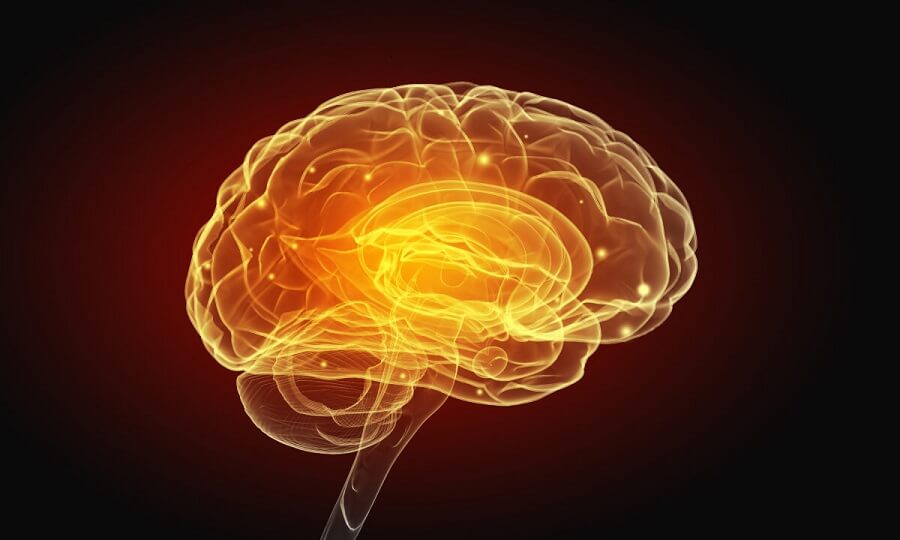
Antidepressant Use Linked To Faster Cognitive Decline In Dementia Patients, Study Finds
Dementia patients taking antidepressants may face faster cognitive decline, especially at higher doses.
By: Cara Michelle | The Epoch Times
Patients with dementia who take antidepressants may face faster cognitive decline, a new Swedish research suggests.
Depression is very common among people with this neurodegenerative disease. The two conditions are strongly linked, with depression raising the risk of dementia and vice versa.
“Depressive symptoms can both worsen cognitive decline and impair quality of life, so it is important to treat them,” co-author Sara Garcia-Ptacek, a researcher at the Department of Neurobiology, Care Sciences and Society, Karolinska Institutet, said in a statement.
“Our results can help doctors and other health care professionals choose antidepressants that are better adapted for patients with dementia,” she stated.
Higher Doses, Greater Risks
The February study, published in BMC Medicine, followed nearly 19,000 dementia patients over 11 years and found that higher doses of serotonin reuptake inhibitors (SSRIs), a type of antidepressant medication, were associated with more rapid mental deterioration, particularly in those with severe dementia or vascular dementia, a type of dementia caused by reduced blood flow to the brain.
Declining cognitive function was assessed using the Mini-Mental State Examination (MMSE), a standard tool for evaluating mental capacity. MMSE screens for dementia and tracks cognitive changes over time by assessing orientation, attention, memory, language, and visuospatial skills.
Throughout the study, participants filled nearly 12,000 antidepressant prescriptions. SSRIs—medications that boost levels of the “feel good” hormone serotonin were the most commonly prescribed, making up nearly 65% of total prescriptions.
Higher doses of antidepressants, particularly SSRIs, were associated with a faster rate of cognitive decline. This pattern held across patient subgroups, including those with Alzheimer’s disease, mixed-cause dementia, and people without a history of depression, suggesting the correlation was not limited to specific profiles.
Some antidepressants had a stronger effect on cognitive decline. Escitalopram (Lexapro) caused the fastest decline, followed by sertraline (Zoloft) and citalopram (Celexa). Mirtazapine (Remeron) also led to cognitive decline but at a slower rate.
Mirtazapine works differently from SSRIs such as escitalopram, sertraline, and citalopram. While SSRIs increase serotonin, the brain’s mood-regulating chemical, by preventing its reabsorption, mirtazapine boosts both serotonin and norepinephrine—a neurotransmitter that affects alertness and energy—through a different process.
“Our study cannot distinguish whether these findings are due to the antidepressants or the underlying psychiatric indication,” the authors wrote.
Although antidepressant use was linked to faster mental deterioration, the changes were not clinically significant, according to the study. Patients taking SSRIs lost 0.25 to 0.76 points per year on their mental-state examination scores. However, score reductions of less than one are considered clinically insignificant, meaning that the decline was not severe enough to immediately affect daily activities or independence.
The researchers plan to investigate whether certain patient groups, such as people with specific dementia types or biomarkers, respond better or worse to different antidepressants. The aim is to identify these subgroups to provide more personalized care, said Garcia-Ptacek.
Complex Connection between Depression and Dementia
“Antidepressants are widely used in patients with dementia to improve neuropsychiatric symptoms, such as anxiety, depression, aggression, and sleep disorders,” the study authors wrote. However, research on antidepressants’ therapeutic benefits for dementia patients remains limited.
Antidepressants may not work as effectively in patients with dementia, possibly because depression in dementia is “a different illness than depression in people with intact cognition,” the study authors wrote.
The causes of depression in dementia are complex.
For some, the challenges of living with dementia—such as the loss of independence—can trigger feelings of sadness or despair. For others, brain damage caused by the disease may directly affect areas involved in regulating mood, contributing to depressive symptoms. Depression can develop early in dementia or emerge later as the disease progresses, which can be both a symptom and a potential risk factor for the condition.
This complicates the relationship, as many symptoms of dementia—such as memory issues and concentration difficulties—overlap with those of depression, making diagnosis challenging.
Similarly, symptoms of depression—such as difficulty sleeping or feeling agitated—can also resemble mental deterioration seen in dementia. A 2019 review noted that older adults with Alzheimer’s disease, in particular, may not always meet the classic diagnostic criteria for major depression, further blurring the lines between the two conditions.
Furthermore, anxiety often precedes or occurs with depression, and the same drugs are used to manage anxiety in dementia patients. However, a March analysis found no improvement in anxiety after antidepressant treatment compared with a placebo.
Given the complexities of this relationship, it’s crucial to assess both depression and dementia symptoms carefully. Treating depression in dementia may improve quality of life but requires careful monitoring to prevent further cognitive decline, especially in patients at higher risk for falls or other health issues, the Swedish researchers noted.
Beyond Medication
The Alzheimer’s Society recommends several nondrug strategies to help alleviate depressive symptoms in people with dementia:
- Talk and listen: Encourage open conversations, offering a listening ear instead of practical advice. If needed, consider counselling or therapy.
- Social interaction: Reduce isolation with one-on-one interactions, such as playing games or holding hands.
- Stay active: Regular physical activity, such as walking or tai chi, can boost mood and sleep. Encourage outdoor time in nature.
- Engage in enjoyable activities: Attending faith services or creative activities such as scrapbooking and singing can be fulfilling.
- Eat well: A balanced diet supports mental health. Avoid excessive alcohol or caffeine, and enjoy meals with family or friends.
- Create positive routines: A regular schedule of enjoyable activities lifts mood. Involve the person in daily tasks to boost engagement.
- Reduce stress: Adjust the living environment by reducing clutter or improving lighting to create a calmer atmosphere.
Combining these strategies with other treatments, including medications, can improve the well-being of people with dementia and depression.
* * *
You’ll Love This One …
Antidepressants Overprescribed, Linked To Suicide Risk
Cases of depression and anxiety increased by 25% in the first year of the COVID-19 pandemic alone by some counts, up from 1 in 20 adults worldwide, and the use of antidepressants has become more common. However, studies have found that antidepressants have unexpected risks.
In the 1960s, it was discovered that depression could be due to a lack of serotonin in the brain. Back then, people believed that serotonin was the “happiness factor” in humans. Serotonin is actually a neurotransmitter. The presynaptic neurons release serotonin and can also reuptake it into the brain to maintain homeostasis.
Thus, drugs were designed with the crude understanding that if the “recycling” pathway for serotonin is blocked, serotonin levels in body fluids will increase, and the symptoms will be relieved.
The main mechanism of the most common classes of antidepressant drugs, which include selective serotonin reuptake inhibitors (SSRIs), noradrenaline, and serotonin and norepinephrine reuptake inhibitors (SNRIs), involves the regulation of serotonin and the uptake of other neurotransmitters.
Although there may seem to be many options available, all of these drugs actually work based on similar mechanisms.
The current antidepressants have a large flaw in their mechanisms, but they are still used in large quantities.
* * *
READ MORE: Why Animal Foods Are Essential For Brain Health
Knowledge! 7 Teas Linked To Better Brain Health
Telegram: Stay connected and get the latest updates by following us on Telegram!
We’d love to hear from you! If you have a comment about this article or if you have a tip for a future Collective Spark Story please let us know below in the comment section.


Could common antidepressants be accelerating dementia? How should we treat depression in people with cognitive decline?